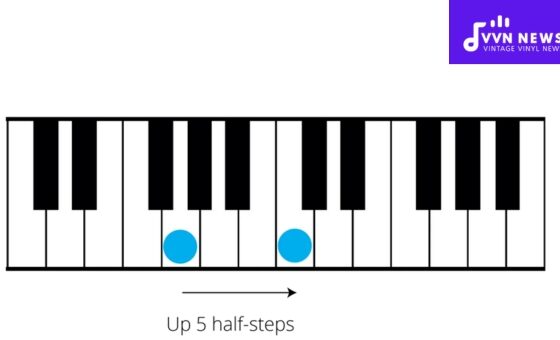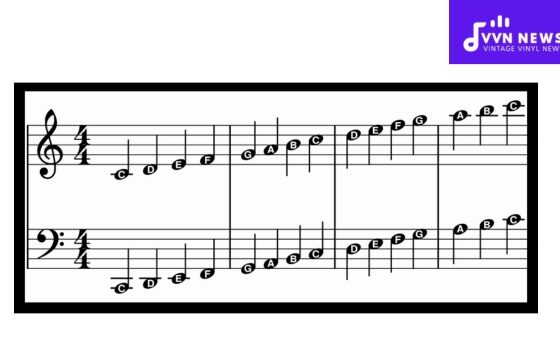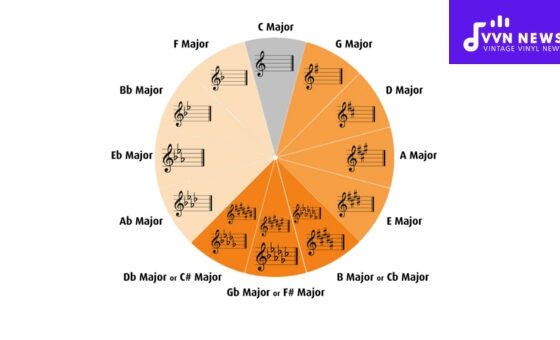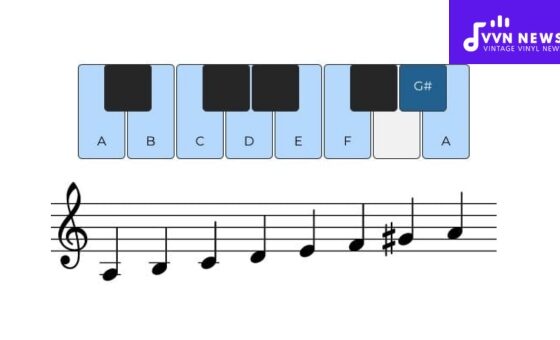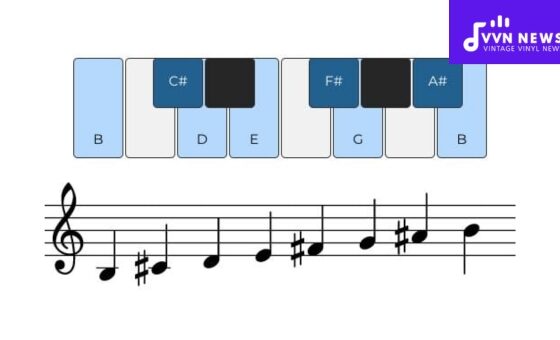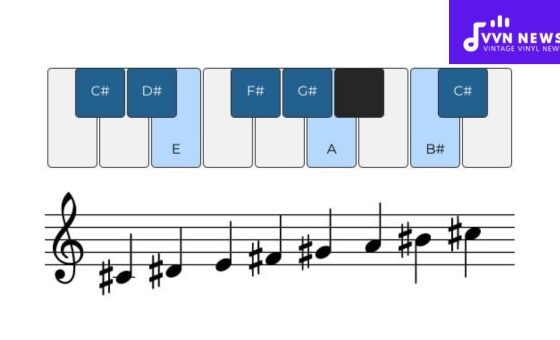When it comes to mastering a musical instrument, practicing scales can sometimes feel monotonous. After all, how many times can you go up and down the same series of notes before it starts to feel dull?
But scales are crucial for developing technique, speed, and finger dexterity. There are ways to make it more engaging. Buckle up as I share 12 ways to make scales practice fun!
Often when we think of scales, we envision endless hours of repeating the same pattern over and over again until our fingers ache and our minds numb.
In essence, this repetition leads us to lose interest quickly. But there’s no reason why scale practice has to be a chore!
Believe me; they can even be fun if you approach them creatively! Let’s emphasize that creativity right now with these 12 exciting methods.
12 Ways To Make Scales Practice Fun!
Just like any skill development, learning scales can sometimes tread into monotonous territory.

Luckily, there are loads of ways you could make this process engaging, and taper off any sense of boredom creeping in.
Let’s delve into the specifics of our 12 ways as to how we accomplish just that.
1. Play Along to Your Favorite Songs
An easy and enjoyable way to make your scales practice more stimulating is by playing along with your favorite tunes!
This method turns practice into a fun jam session. Instead of running through scales in isolation, you’re integrating them into actual music.
Start by picking songs that have the same key as the scale you’re using and play along.
Not only will this make your scales practice engaging, but it also improves your musical agility and gives context on how scales work in actual musical pieces.
2. Set Small, Achievable Goals
Another approach to making scales practice enjoyable is setting small, achievable goals. Instead of focusing on mastering all 12 major or minor scales at once, aim for one or two at a time.
The satisfaction you get from achieving these micro-goals can solidify your motivation to continue the practice.
Don’t hesitate to reward yourself once you hit these small targets —it can be as simple as taking a short break or indulging in a treat!
3. Use Variety of Rhythms
Scales don’t always have to be played in consistent eighth notes or quarter notes.
Get more creative and try playing with varied rhythms – dotted, syncopated, or swing rhythms give the standard scale an entirely new feel.
Switching rhythms adds character and depth to any scale routine while efficiently increasing your rhythmic vocabulary.
It’s an excellent way of ensuring that boredom doesn’t creep into your daily routine!
4. Create Challenges with Friends
Turn scale practice into a friendly competition! Collaborate with friends who are also working towards improving their musicianship skills – if they’re learning the same instrument as you or not.
Challenge each other to master specific sections of selected pieces faster or in the best quality sound and tone.
These friendly contests will keep spirits high and equally motivate everyone involved.
5. Record Yourself & Track Progress
Nothing beats seeing tangible evidence of improvement! Recording yourself provides the opportunity to monitor growth; thus, this can be incredibly motivating.
Use your phone to film or record while you practice and afterward, review the recording.
You’ll see where you’ve improved and also areas that require more attention. This method gives you a broader perspective of your performance.
6. Incorporate Scales into Improvisation
Turn your scales practice into a creative session by incorporating them into improvisation.
For example, once you’re comfortable with a certain scale, use it as the foundation for an improvised melody.
This method not only adds depth to your practice but also improves listening skills and music theory learning.
Many great musical compositions come from simple scale or chord progressions!
7. Change the Tempo Regularly
In every practice session, avoid sticking to one tempo. It’s advantageous to explore different tempos when practicing your scales.
Today you might play slow and deliberate, giving each note space and depth. Tomorrow, increase the speed slightly, focusing on maintaining accuracy in faster play.
By regularly changing up the speed of your scale runs, you enable smooth transitions between tempos in various musical contexts.
It diversifies your practice sessions and helps maintain engagement over time!
Also Read: Harmony In Music [Enhance Your Compositions With These Tips]
8. Explore Different Styles and Genres
Get out of your comfort zone by playing scales in different styles or genres!
For example, if you’re a classical piano player primarily using major and minor scales – why not delve into Blues or Jazz?
By doing this, you expose yourself to diverse melodies thereby enhancing articulation and dynamics.
Exploring various styles will inevitably lead to encountering fresh ways of including scales in compositions – adding new dimensions to your budding repertoire.
9. Reward Yourself for Milestones
Now and then, take a moment to revel in the progress you have made. Have you finally mastered that complex melodic minor? Splurge on that new pedal you’ve been eyeing as a reward!
By linking rewards with milestones (like mastering a difficult exercise or learning a new scale), you motivate yourself actively which drives consistent improvement.
10. Use Technology and Apps for Interactive Learning
Our digital age grants access to countless technologies infused with interactive learning techniques – so make good use of them!
From video tutorials on YouTube that simplify complex methodologies to music learning apps equipped with gamified ways to master scales, the world is literally at your fingertips.
An app like Yousician promises tailored feedback in real-time while Scale Trainer Guitar Pro offers a comprehensive library of scales; exploring technology promotes meaningful and fun practice.
11. Mix in Scale-Based Games
Add a playful element to your routine with scale-based games! Try ‘scale lottery’ where you randomly draw a scale to practice or ‘scale timer’ that challenges how many times you can play a scale perfectly within a set time limit.
More than just being fun, games facilitate learning through competition and a reward system, stimulating focus and desire to excel.
12. Attend Workshops or Masterclasses
Think about attending workshops or masterclasses online or in person. What better way to explore the vast world of scales than learning from professionals themselves?
Masterclasses offer valuable insights into professional techniques while workshops enable hands-on practice in controlled environments.
Quite often, these sessions also discuss novel ways of practicing routine tasks (like playing scales), transforming them into lively tasks instead of dull ones.
Now that you’re ready to jump back into scales practice – remember to keep it diverse, engaging, and exciting.
And most importantly, never underestimate the value of having fun while practicing! The more enjoyable it becomes, the faster you will grow as a musician!
Also Read: A Minor Scale [Unlock The Mysteries Of Musical Composition]
FAQs
What are some key benefits of practicing scales on a musical instrument?
Practicing scales greatly enhances finger dexterity, speed, and overall technique, which improves your broader ability to play.
Why does it matter to have fun while practicing scales?
Enjoying the practice leads to longer, more consistent sessions, which translates into faster progress.
How can setting goals contribute to my scale practice?
Setting small, achievable goals keeps you focused and provides a sense of accomplishment when reached.
Can technology help me in my scale practice fun?
Absolutely! There are numerous apps and interactive learning tools available that make scales practice stimulating and enjoyable.
Why is changing tempo important while practicing scales?
Changing tempo tests your skill level and keeps practicing interesting as it adds another layer of complexity.
Also Read: A Sharp Minor Pentatonic Scale [Unique Harmonic Possibilities]
Conclusion
Advocating that old saying, “practice makes perfect,” I believe incorporating these 12 refreshing methods into your scales practice regime is sure to eradicate the risk of losing interest
It’s playfully following along to your favorite tunes, experiencing an app-led interactive learning experience, or attending a much-anticipated workshop, make your scales practice sessions fun!
Keep in mind; that variety is the spice of life. So shake things up a bit! The key point here is not to get stuck in monotony but to rejoice in the beautiful variety that music provides. Your fingers and musical mind will thank you for it!

